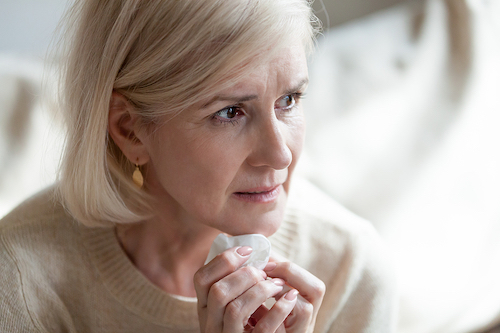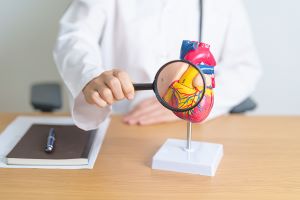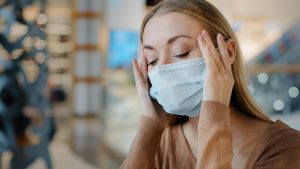March 31, 2024
by Elizabeth Pratt

Middle aged Americans are experiencing significantly higher levels of loneliness than their European peers.
Research published in American Psychologist found that baby boomers in particular are experiencing high levels of loneliness.
[More]
December 5, 2023
by Patricia Tomasi

A recent review in the Journal of Trends in Pharmacological Sciences was written by four scientists from different universities -- Dr. Bernhard Luscher from Penn State University, Dr. Jamie Maguire from Tufts University, Dr. Uwe Rudolph from University of Illinois Urbana-Champaign, and Dr. Etienne Sibille from the University of Toronto -- who have a longstanding interest in the role that GABAA receptors play in the brain, specifically for the development and therapy of depression.
[More]
November 21, 2023
by Patricia Tomasi

A new study published in the Journal of Brain, Behavior, and Immunity looked at the effect of modernized collaborative care for depression on depressive symptoms and cardiovascular disease risk biomarkers. “We set out to determine whether treating depression, a psychological risk factor for cardiovascular disease (CVD), could reduce the risk of developing CVD in the future, like treating high blood pressure and high cholesterol,” study author Jesse C. Stewart told us. “Our study, the eIMPACT trial, was based on more than three decades of research showing that people with depression are at elevated risk of developing CVD, similar to people with traditional CVD risk factors.”
[More]
June 30, 2023
by Elizabeth Pratt

The US Preventive Services Task Force has recommended adults under the age of 65 be screened for anxiety disorders.
This is the first time anxiety screening for this group has been recommended.
[More]
June 13, 2023
by Patricia Tomasi

A new study published in the Journal of the American Planning Association looked at breaks in the workplace and why some employees take their breaks and others don’t. “Our research is about breaks in the workplace,” study author Vincent Phan told us. “We were hoping to get a better sense of employees’ reasons for taking breaks at work, as well as their reasons for not taking breaks despite wanting or needing a break.” Past theory and research within the occupational health psychology literature would suggest that employees may want a break when they feel tired or upset, or when they feel their performance on the job isn’t as good as they would like. However, employees do not always take breaks when they want to do so.
[More]
April 18, 2023
by Patricia Tomasi

There has been a lot of research into how leaders with low self-esteem are likely to cause toxic stress at work. Simon L. Dolan, author of De-Stress at Work: Understanding and Combatting Chronic Stress has brought together the research into a book. In the chapter about toxic leaders specifically, he summarizes and analyses the results of many other studies and he has done many studies himself. “The underlying concept behind this book, is to demystify the concept of chronic stress,” Dolan told us. “It is poorly understood, poorly used, and there are no, or very few, valid diagnostic tools available to professionals in the field."
[More]
March 28, 2023
by Patricia Tomasi

A new study published in the Journal of Health Psychology looked at a longitudinal assessment of COVID-19 fear and psychological wellbeing in the United Kingdom. “Our study examined how fear of the COVID-19 virus impacted psychological wellbeing in a UK population at two different timepoints during the pandemic,” study author Martyn Quigley told us. “The first timepoint took place when the number of COVID-19 related deaths and hospitalizations were high and the number of those who were vaccinated were low. The second timepoint took place when the number of deaths and hospitalizations were considerably lower, and most of the population were vaccinated.”
[More]
February 27, 2023
by Elizabeth Pratt

Enjoying time in nature close to home is associated with a greater sense of wellbeing compared with longer and more intense nature excursions.
Research published in People and Nature found that nearby nature engagement had greater positive outcomes overall compared to experiencing nature second hand through media or through more strenuous excursions in nature.
[More]
January 29, 2023
by Elizabeth Pratt

Daily engagement in political news can have a negative impact on mental health, but disengaging can also have consequences.
Research published in the Journal of Personality and Social Psychology found that strategies to manage the negative emotions that come from daily engagement may also reduce an individual’s motivation to act on what they care about politically.
[More]
January 28, 2023
by Elizabeth Pratt

Teenagers with positive psychological assets like optimism and feeling loved are more likely to reach their 20s and 30s in good cardiometabolic health.
A study published in the Journal of the American Heart Association found that teens who felt happy, optimistic, had good self-esteem, felt loved and felt a sense of belonging had better cardiometabolic health later in life compared to their peers without these positive psychological assets.
[More]